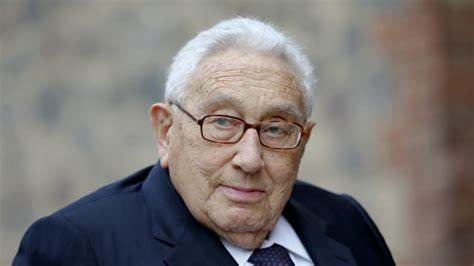
 Henry Kissinger’s Legacy: A Controversial Chapter in History
Henry Kissinger’s Legacy: A Controversial Chapter in History
Henry Kissinger, a stalwart in American politics, passed away at the age of 100, leaving behind a legacy that is both admired and criticized. As the world mourns the loss of this influential figure, controversial remarks made by Bangladesh’s Foreign Minister, Abdul Momen, have sparked discussions about Kissinger’s role in the 1971 Bangladesh Liberation War.
Abdul Momen’s Controversial Remarks
Abdul Momen’s recent statements have reignited a decades-old debate surrounding Kissinger’s actions during a tumultuous period in South Asian history. Momen has boldly criticized Kissinger’s alleged support for the Pakistani military junta during the conflict, opening a Pandora’s box of diplomatic tensions.
Momen’s Call for Apology
Momen’s call for an apology from Kissinger has added fuel to the fire. Despite acknowledging Kissinger’s prominence in global politics, Momen insists that an apology is due for the actions taken during the 1971 war, where the former US Secretary of State is accused of supporting Pakistan’s oppressive regime.
Kissinger’s 1971 Actions
During the Bangladesh Liberation War, Kissinger, as part of the Nixon administration, reportedly supported the Pakistani military, disregarding international laws. Momen has explicitly pointed out that Kissinger’s decisions had severe consequences for the people of Bangladesh, resulting in significant loss of life and displacement.
Momen’s Accusations
Abdul Momen, in no uncertain terms, has accused Kissinger of violating US laws and international norms by supporting the Pakistani military regime. The arms supply by the Nixon administration to Pakistan during the conflict has been a focal point of Momen’s criticism, leading to a strained diplomatic discourse.
The Impact of Kissinger’s Policies
The consequences of Kissinger’s policies during the 1971 war are still felt today in Bangladesh. Momen emphasizes the need to recognize the suffering endured by the Bangladeshi people during that period and calls for accountability for those involved in supporting oppressive regimes.
Momen’s Critique on Nixon Administration
Momen not only targets Kissinger but extends his criticism to the broader Nixon administration. He claims that geopolitical interests played a pivotal role in shaping US foreign policy, often at the expense of justice and human rights.
1972 China Visit and Diplomatic Changes
The year 1972 saw Kissinger’s secret visit to China, marking a significant shift in global politics. The subsequent improvement in US-China relations had far-reaching consequences, reshaping diplomatic alliances and geopolitical landscapes.
Momen’s Expressions of Sorrow
While expressing sadness over Kissinger’s actions, Momen highlights the moral dilemma faced by political figures when making decisions that impact nations. He acknowledges Kissinger’s intellect but underscores the need for accountability in the face of humanitarian crises.
Kissinger’s Legacy in International Politics
Kissinger’s legacy is undeniably complex. His role in shaping global politics, especially in the context of the Cold War, has garnered both praise and criticism. Momen’s critique, however, focuses on the specific actions taken during the Bangladesh Liberation War.
Momen’s Call for Fact-Based Decisions
Abdul Momen’s plea for fact-based decisions in geopolitics is a crucial aspect of this controversy. He emphasizes the importance of basing judgments on historical facts rather than emotions, highlighting the challenges faced by nations in navigating complex geopolitical scenarios.
Global Reactions to Momen’s Remarks
The global community’s reactions to Momen’s remarks have been diverse, with some supporting his call for accountability, while others argue that historical events should be viewed in the context of their time. Kissinger’s legacy continues to spark debates on the fine line between pragmatism and moral responsibility in international relations.
The Importance of Apology
The discussion around Kissinger’s actions brings to the forefront the significance of political figures apologizing for past decisions. Momen’s call for an apology raises questions about accountability in international relations and the role of remorse in acknowledging historical injustices.
, Abdul Momen’s outspoken criticism of Henry Kissinger’s role in the 1971 Bangladesh Liberation War has reopened a chapter in history that remains contentious. While Kissinger’s legacy is vast and influential, Momen’s call for an apology prompts reflection on the ethical dimensions of geopolitical decisions and the need for accountability.
Read More: The Urdu Video Scandal Why the UK Green Party is Under Fire Over PM Modi

 Share
Share


_1531794722_100x75.jpg)
_591321350_100x75.jpg)